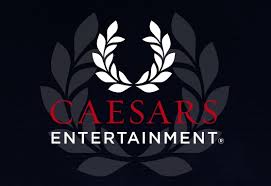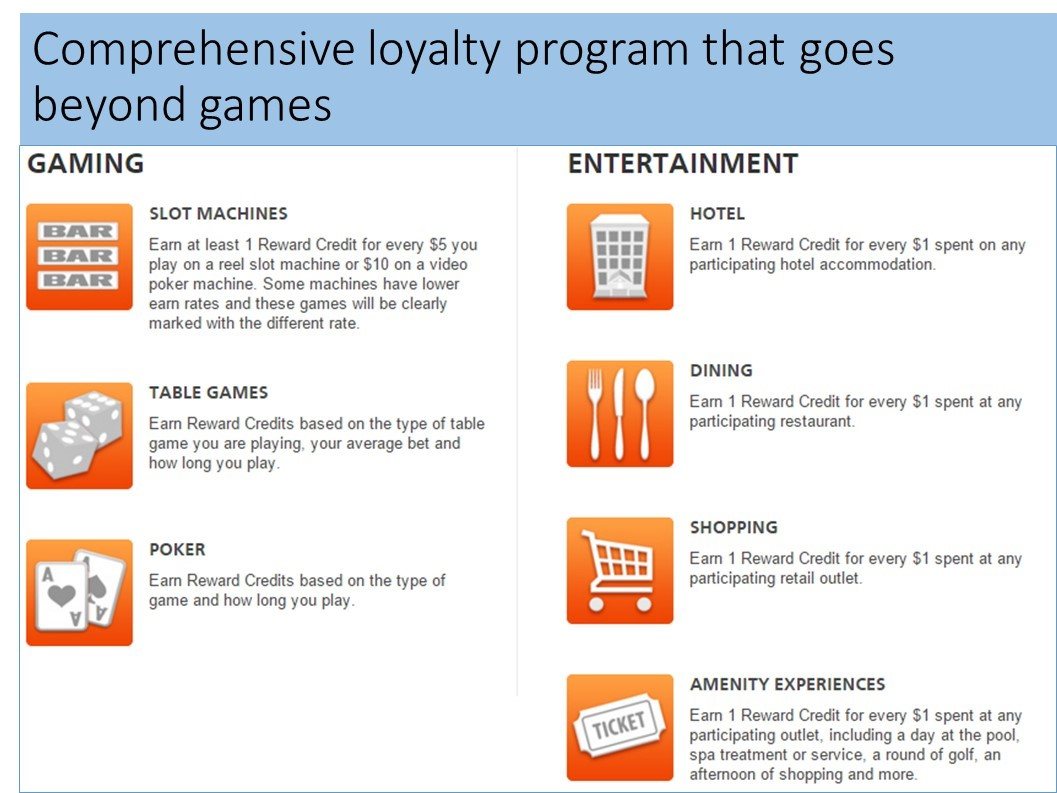The house always wins

The effectiveness of Caesars Entertainment in Las Vegas
“Listen, here’s the thing. If you can’t spot the sucker in your first half hour at the table, then you are the sucker.” – Matt Damon in Rounders
I spent thanksgiving break with a set of International RCs in Las Vegas. While there are numerous distractions in Sin City, this blog post was clearly in the back of my mind. As I sat at blackjack tables, I couldn’t help but be astounded by the effectiveness of the Caesars Palace. I chose the casino business as a model of effectiveness because every member of my eight-person group lost money in the Casino yet we all came away fairly satisfied with our experience and almost guaranteed to come back to Las Vegas.
Business model
The business model is very simple. Casinos offer a set of slot machines and table games where the house has a probabilistic edge in the outcome. Over the medium to long term this ensures that the “house always wins.” In blackjack, the house edge stems from the player losing his or her money when their hand busts (goes over 21) regardless of whether the dealer subsequently goes bust or not. In the short term however, because the probabilities are so close to 50:50, there is tremendous volatility in the outcomes and this volatility can create large returns for players. This volatility and perceived ability to win is what excites visitors and gets them to play.
Operating model
The operating model for a casino is focused on two main areas. What happens at the table and what happens when the player leaves the table? At the table, the casino is focused on increasing the number of people playing the game (increase utilization), the number of independent hands each player plays (reduce cycle time). Away from the table, the Casino wants you to return to one of its tables and go through it again.
Dealers are your “friends”
At the table, the deliberate operating choice that I felt had an enormous impact on reducing cycle time or increasing the number of hands played was ensuring that everyone at the table had aligned incentives. Especially the dealers. The dealers in blackjack will always give you the best advice on what to do with your hand. This makes the player very comfortable and allows the dealer to finish the current hand and move on to the next. Dealers are allowed by casinos to help the players but are instructed to deal hands as quickly as possible. I am focusing on blackjack not only because we predominantly lost money playing blackjack but also because it was the highest grossing table game in Nevada in October of this year, representing 27% of statewide revenue at $85M.
Doesn’t matter where you play
As we played, there were often times where one of us in the group would have won a small amount of money. We would then get up and walk away from that table knowing that instead of losing now, we could instead play later. The casino knows that you could win in the short term but will likely lose it later. However, they are unsure whether you will come back and lose it at their casino. To reduce this variability, another operating model decision they have made is to own and operate a lot of casino properties in the same area and give you a loyalty card that incentivizes you to play at one of their properties. The variability that enables you to win at one casino will lead you to likely give it back to them at a sister property. If you do lose, the casino may provide you with a complementary room or a meal which incentivizes you to get the card but what the Casino gets is the guarantee that you will play at one of their properties. As of November 2015, 11 of 31 casinos were owned by Caesars with another 10 being owned by one other competitor, MGM Resorts.
The operating model choices at the table are very closely aligned with the business model of the game. From a sustainable advantage standpoint, the choice at the table is not enough, every casino does it. The sustainable competitive advantage stems from having these properties located close to one another and keeping the players within the Caesars’ ecosystem through the loyalty program. And while Matt Damon is referring to Poker players, I believe it applies to all of Las Vegas. We are all “suckers”.
Sources
[1] Discussions with three dealers and a pit boss in Las Vegas
[2] http://blackjacklife.com/casino-tricks-used-on-blackjack-players/
[3] http://gaming.nv.gov/modules/showdocument.aspx?documentid=10629
[4] https://www.quora.com/Online-Gambling/What-is-the-business-model-of-casino
[5] http://www.bbc.com/travel/story/20120816-travelwise-casino-design-and-why-the-house-always-wins





Interesting post SK, and I’m not sure if I want to even ask about the economic impact of your visit over Thanksgiving 🙂 As you’ve laid out in your post, the operating model at casinos is so deliberate and fascinating. Another aspect of their operating model you didn’t mention is the design of the space, which is thoughtfully planned to attract and retain gamblers for as many hours/hands as possible. From the lack of windows and clocks (so gamblers lose track of hours), the slot machines available upon immediate entrance (before you can even check in to your hotel room), to the bright lights and sounds when someone wins (hey, they won, you can too!) and the use of free perks (come play and drink for free), casinos are considering every detail in how they attract visitors and get them to spend more money in each visit. These efforts are extremely effective, and unfortunately I’m a sucker too!
Tanya – thanks for your comment. While researching this post, I came across a very well written post on casino space design so felt I shouldn’t recreate the wheel! Here’s the link if you’re interested: http://www.timeout.com/chicago/things-to-do/the-psychology-behind-casino-design
Thanks SK for the great post. I felt compelled to comment given it was one of my portfolio companies before school. As you highlighted, the Total Rewards program that Caesars implemented was a complete game changer. Because customers use the card each time they play, it generates massive amounts of data. Caesars is able to mine this data in order to derive insights on consumer behavior, which further contributes to the Company’s competitive advantage as no other casino operator has a loyalty program like it. Coincidentally, it was created by a former HBS professor who left the school to found the program.
Separately, I think one of the most interesting headwinds to Casinos overall is the melting ice cube which is the slots business. Simply put, millennials don’t play slot machines (sounds like you only played poker too!), yet these machines remain a core part of industry earnings. It will be interesting to see how the company alters its operating model to adapt to this change in consumer habits.
Thanks for the unique insight, Phil! It will be really interesting to see how Caesars effectively uses all the data it generates.
Also, it’s very surprising that slot machines are still a thing